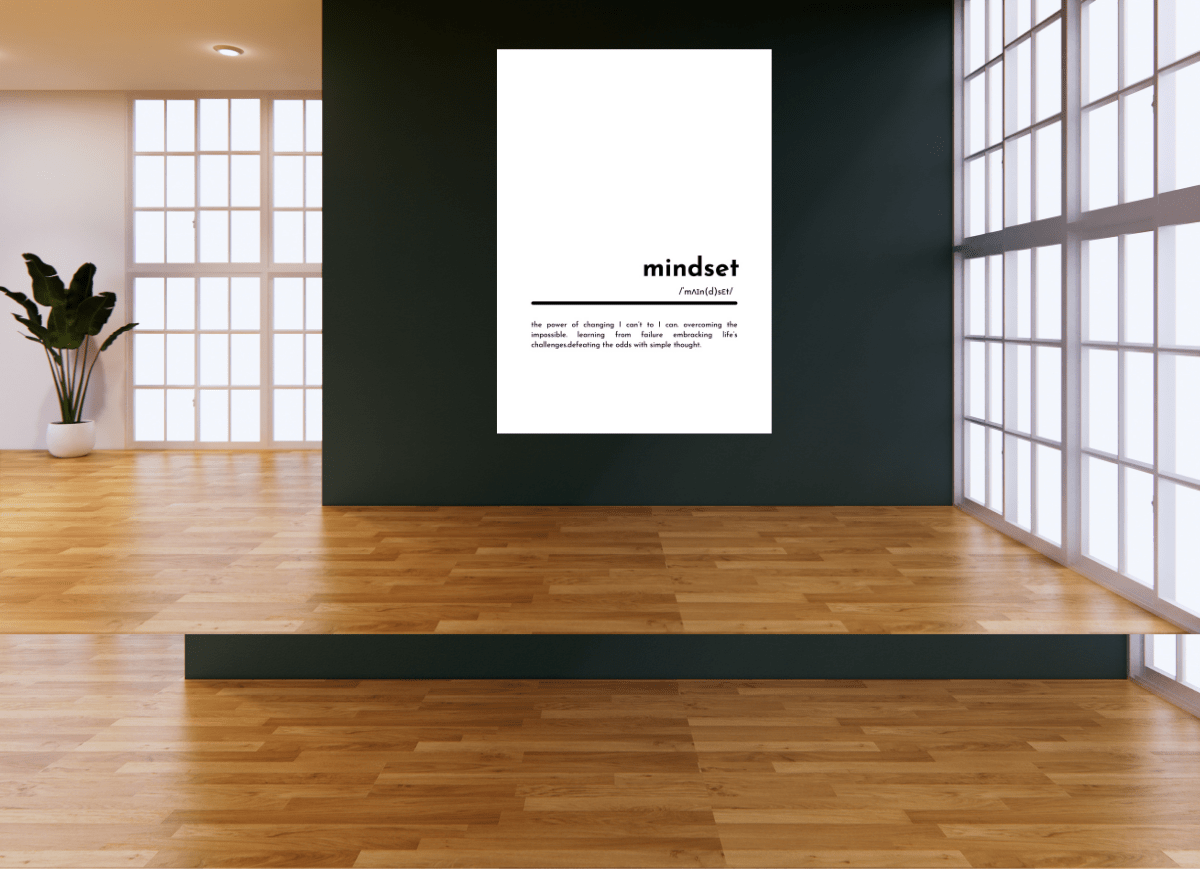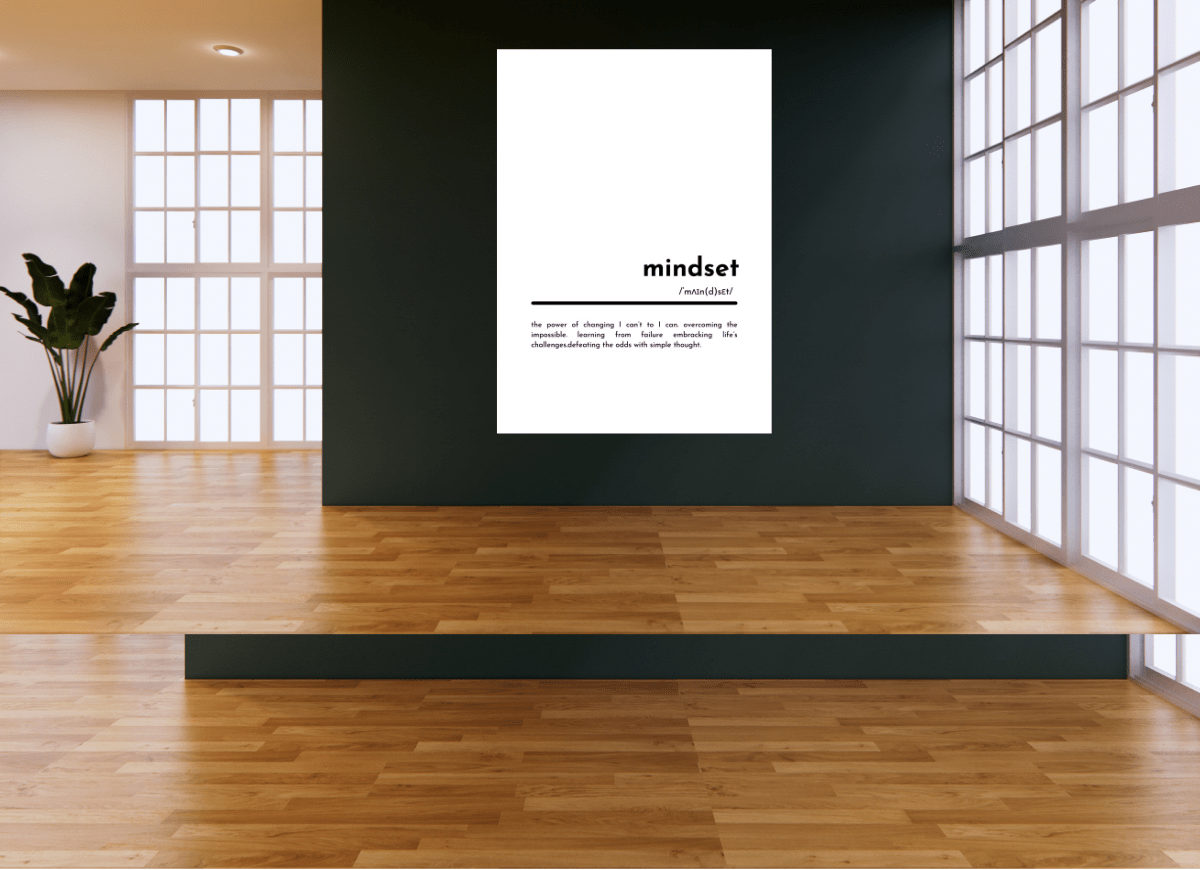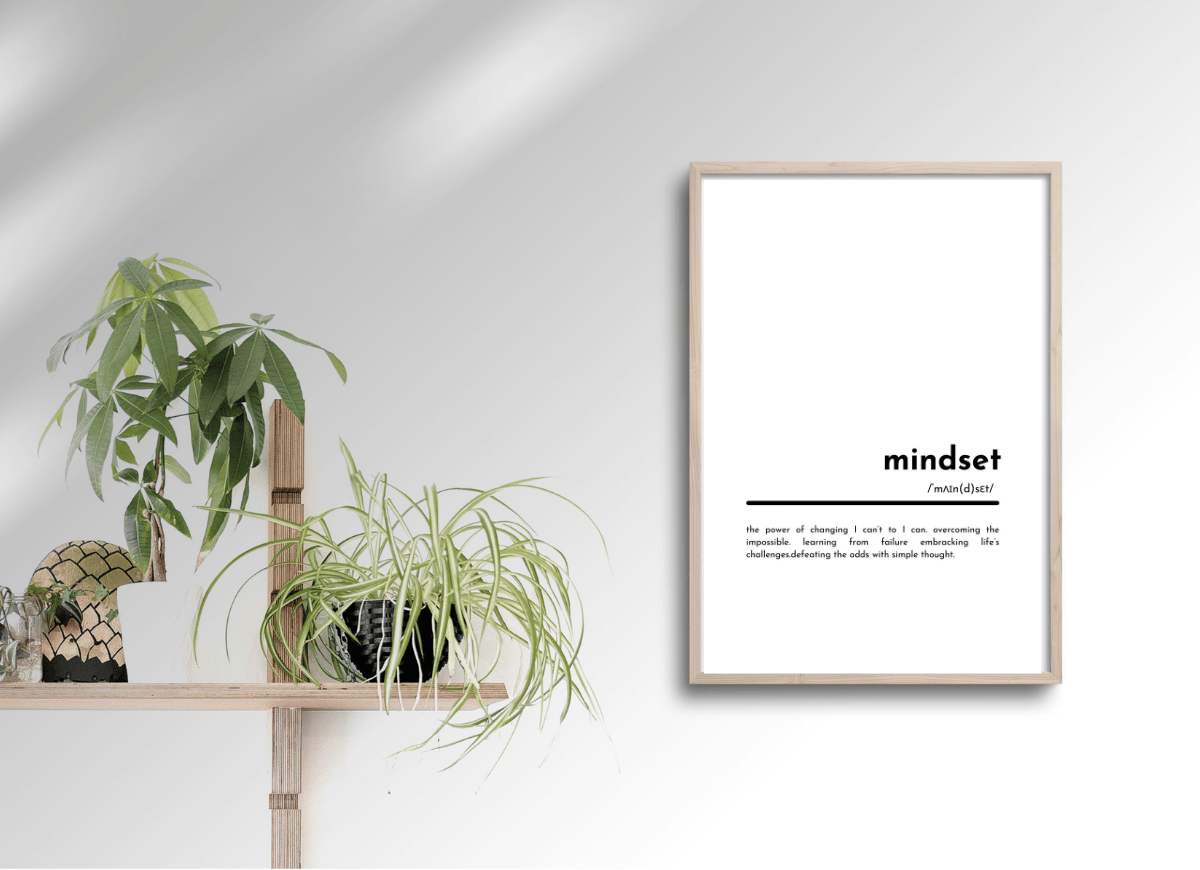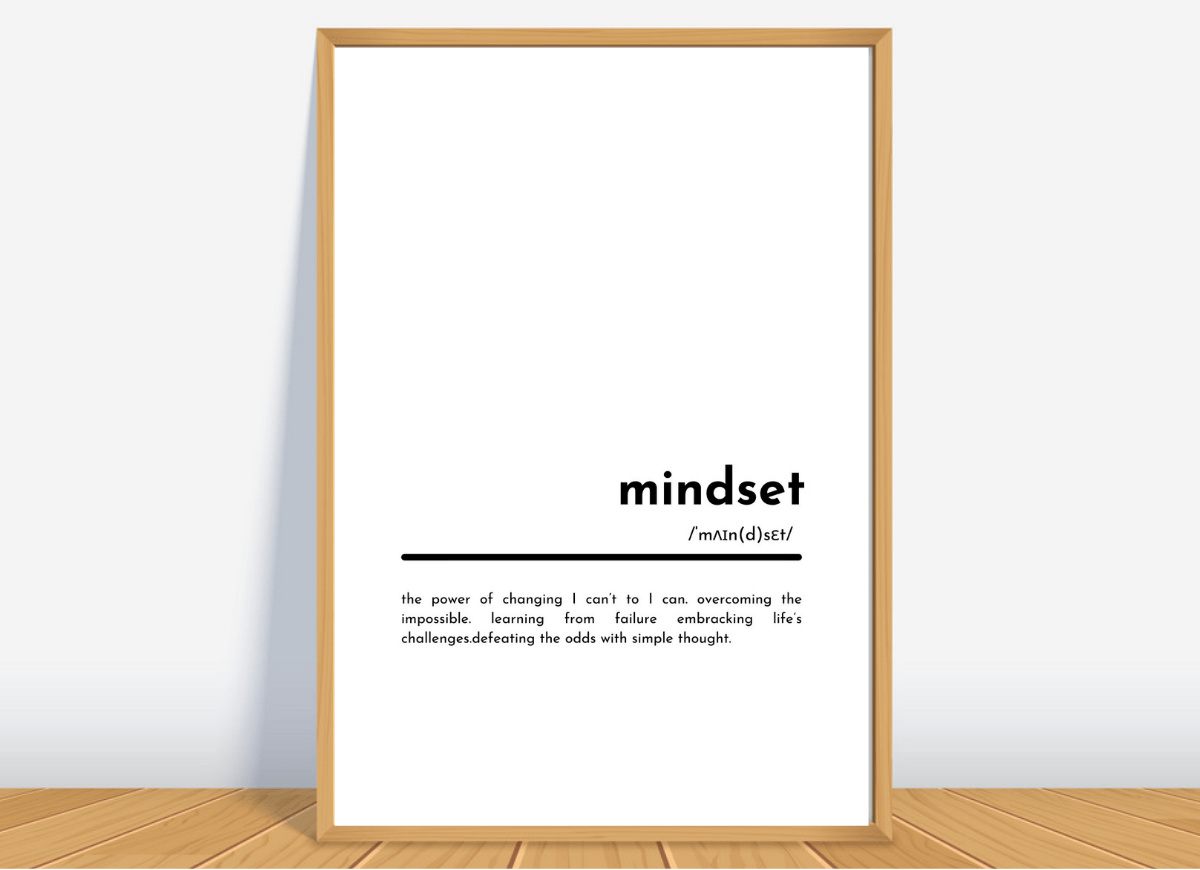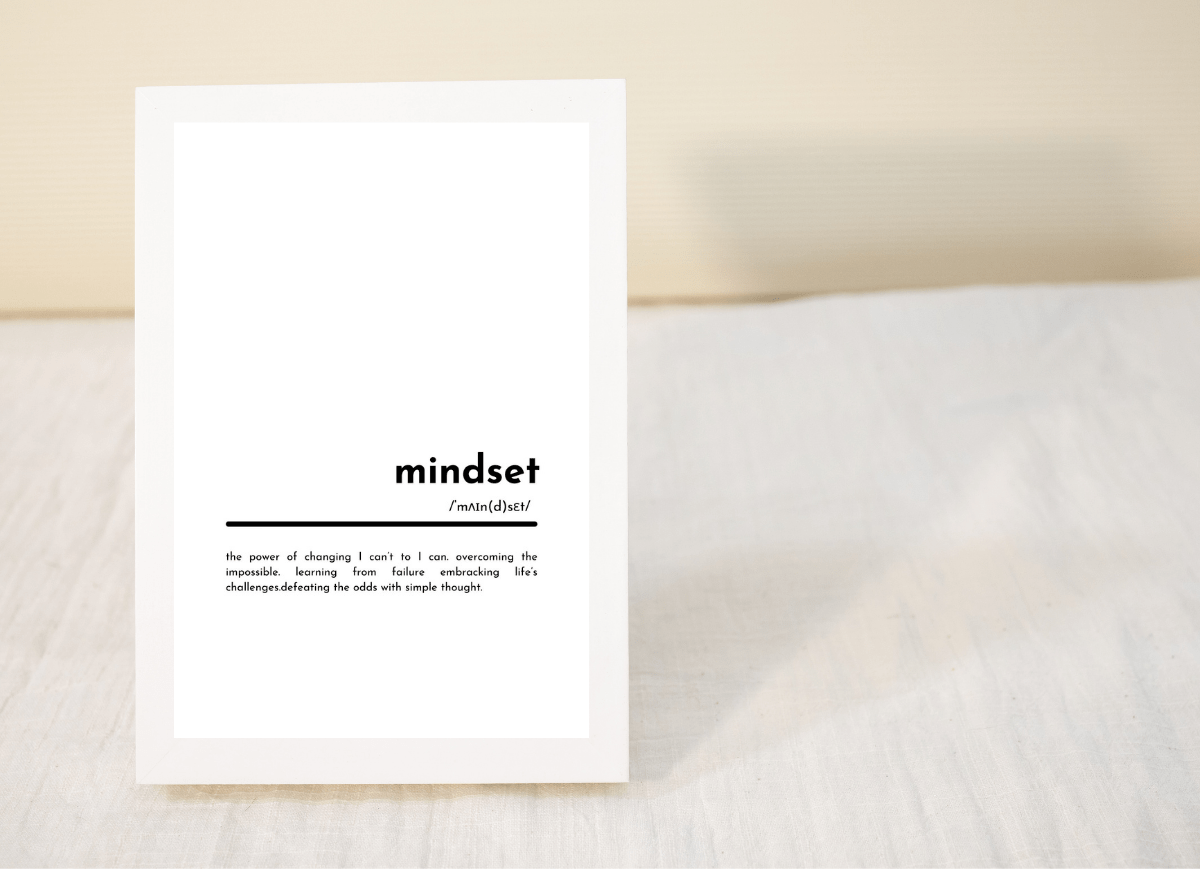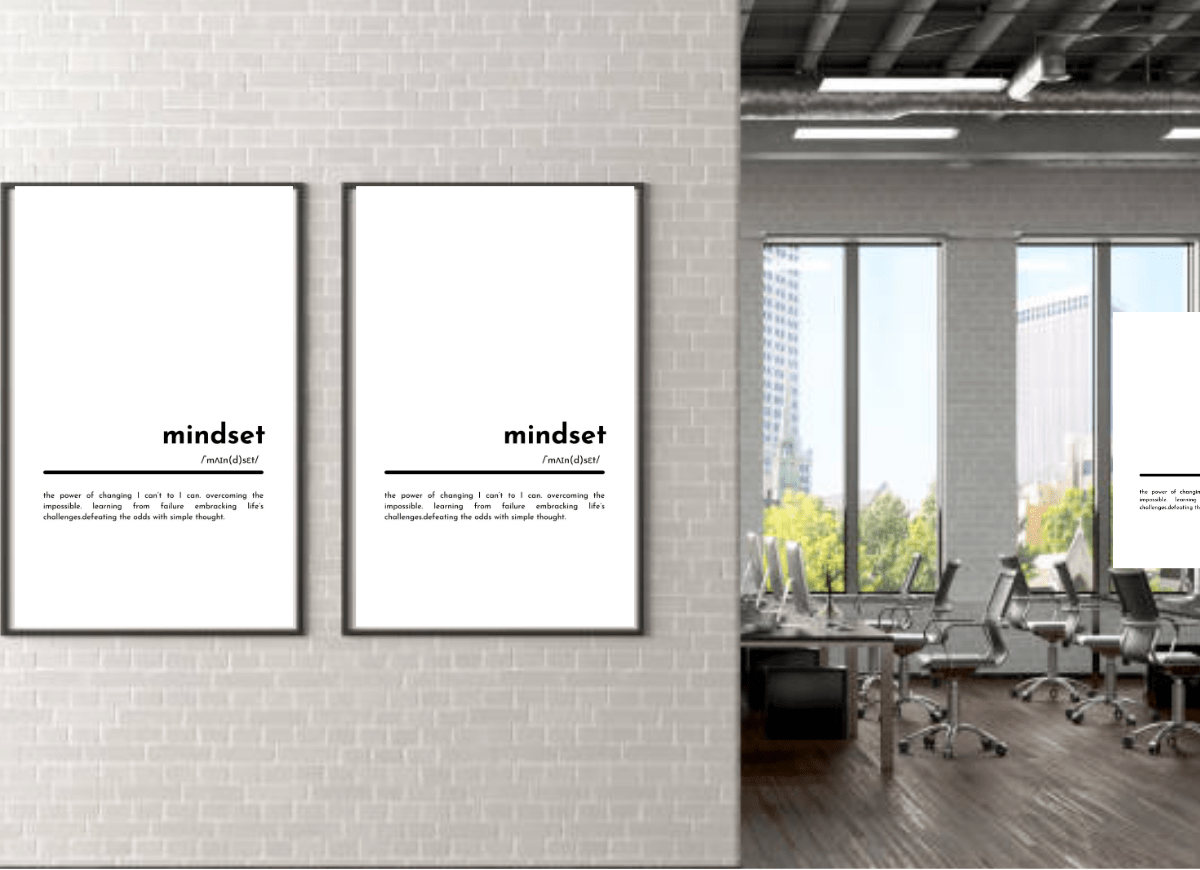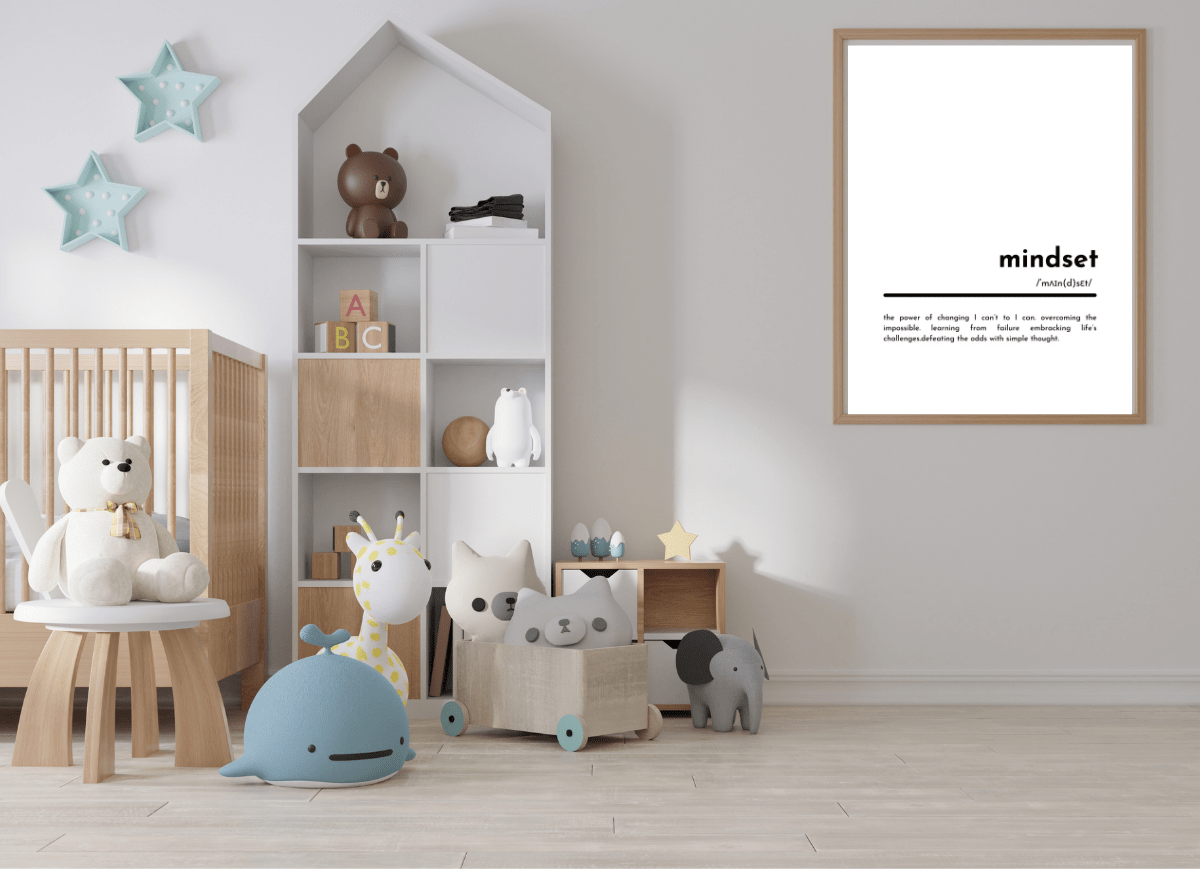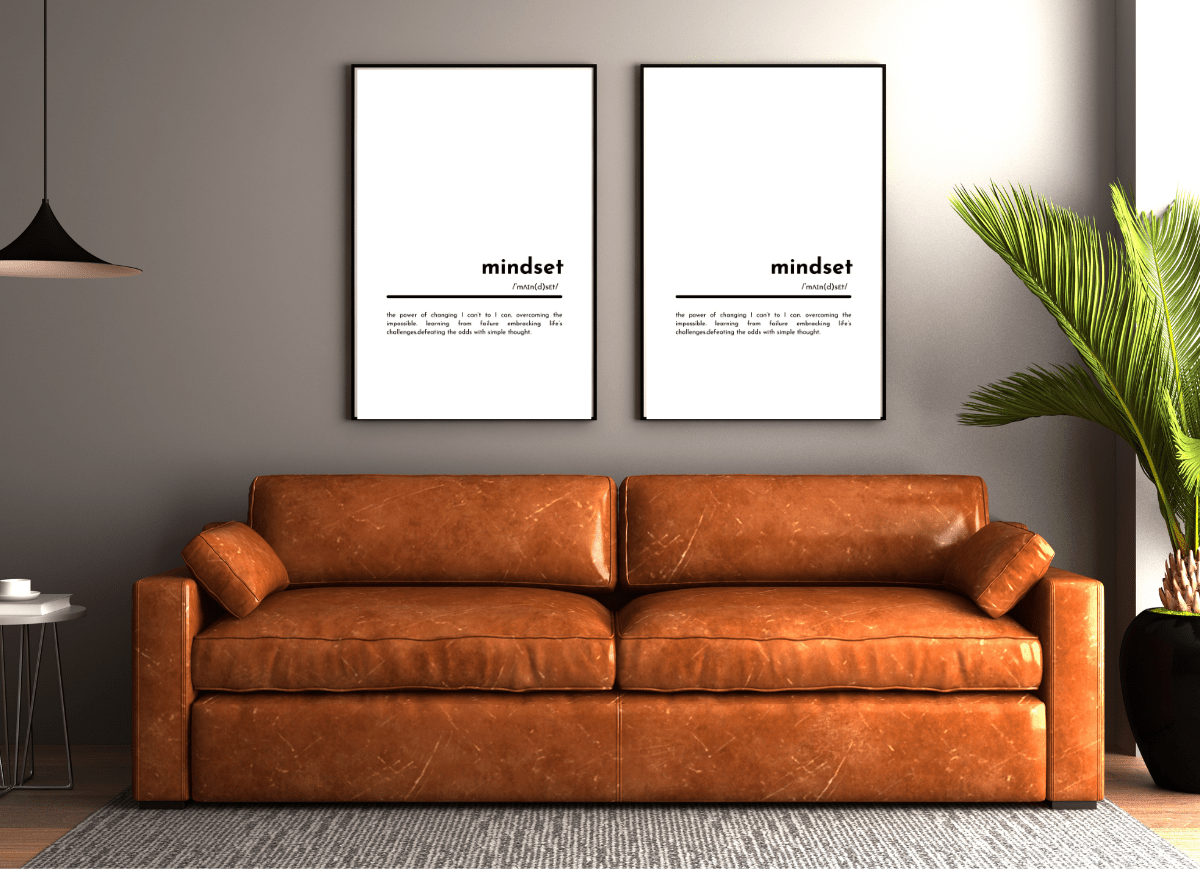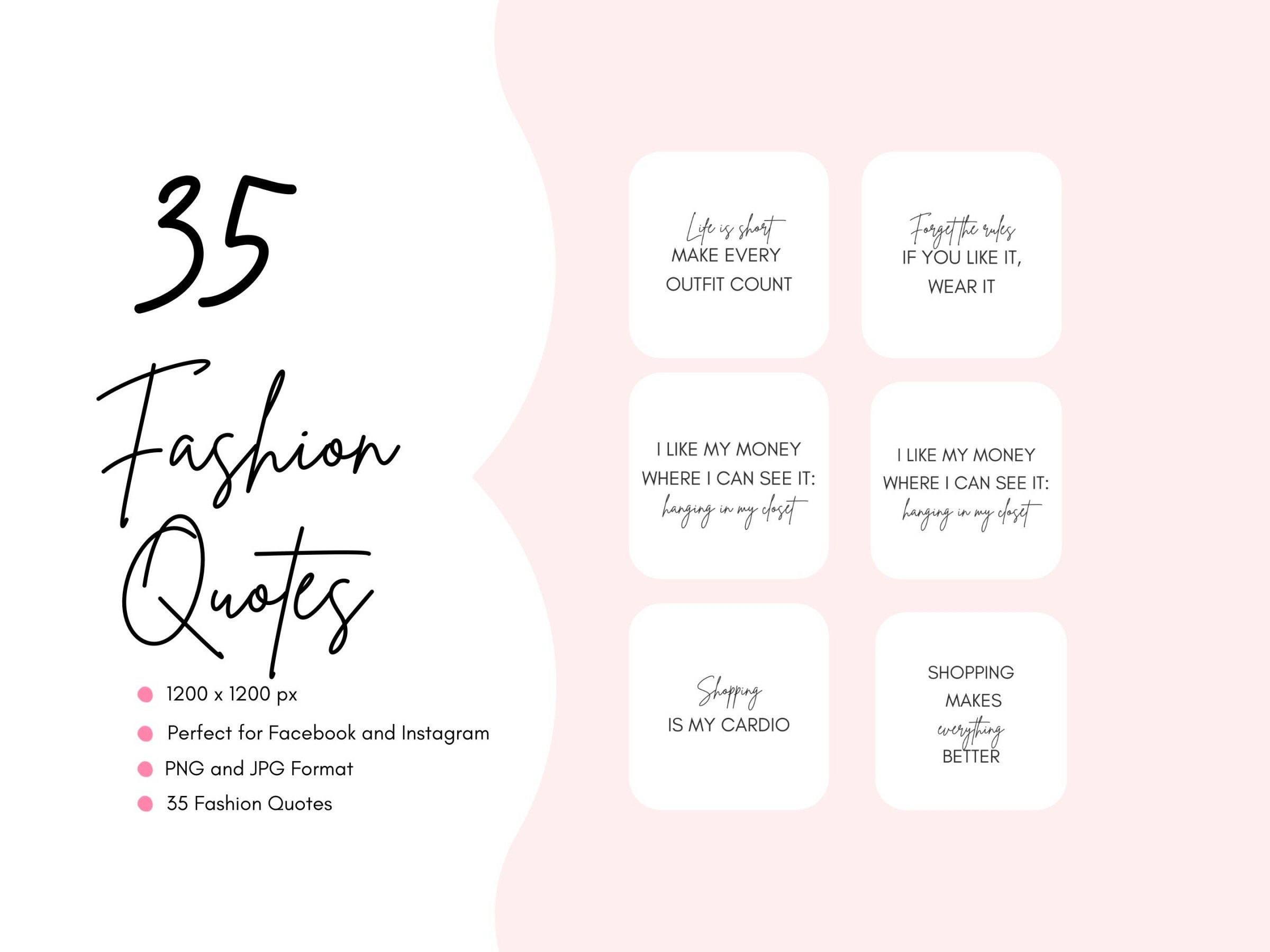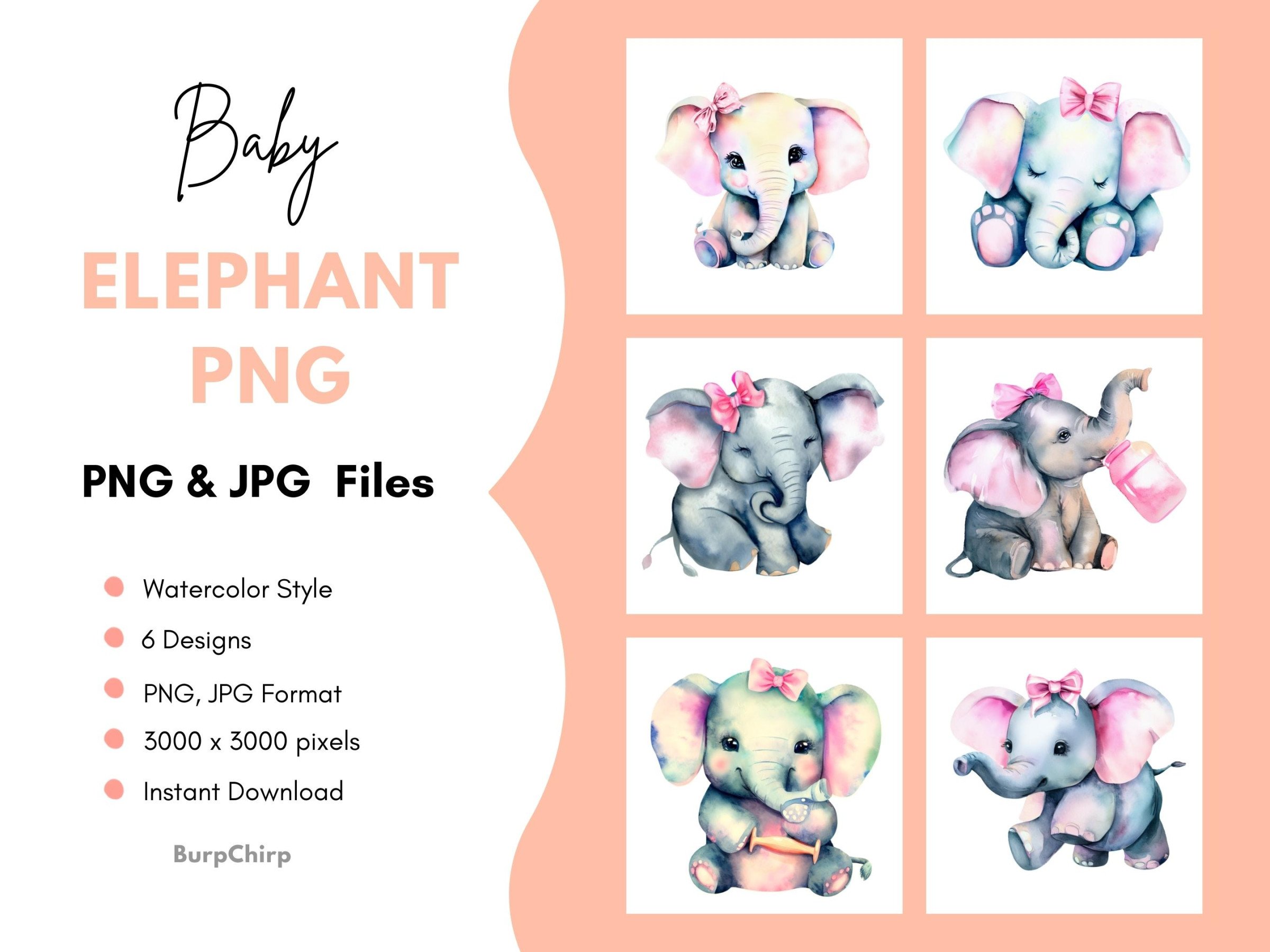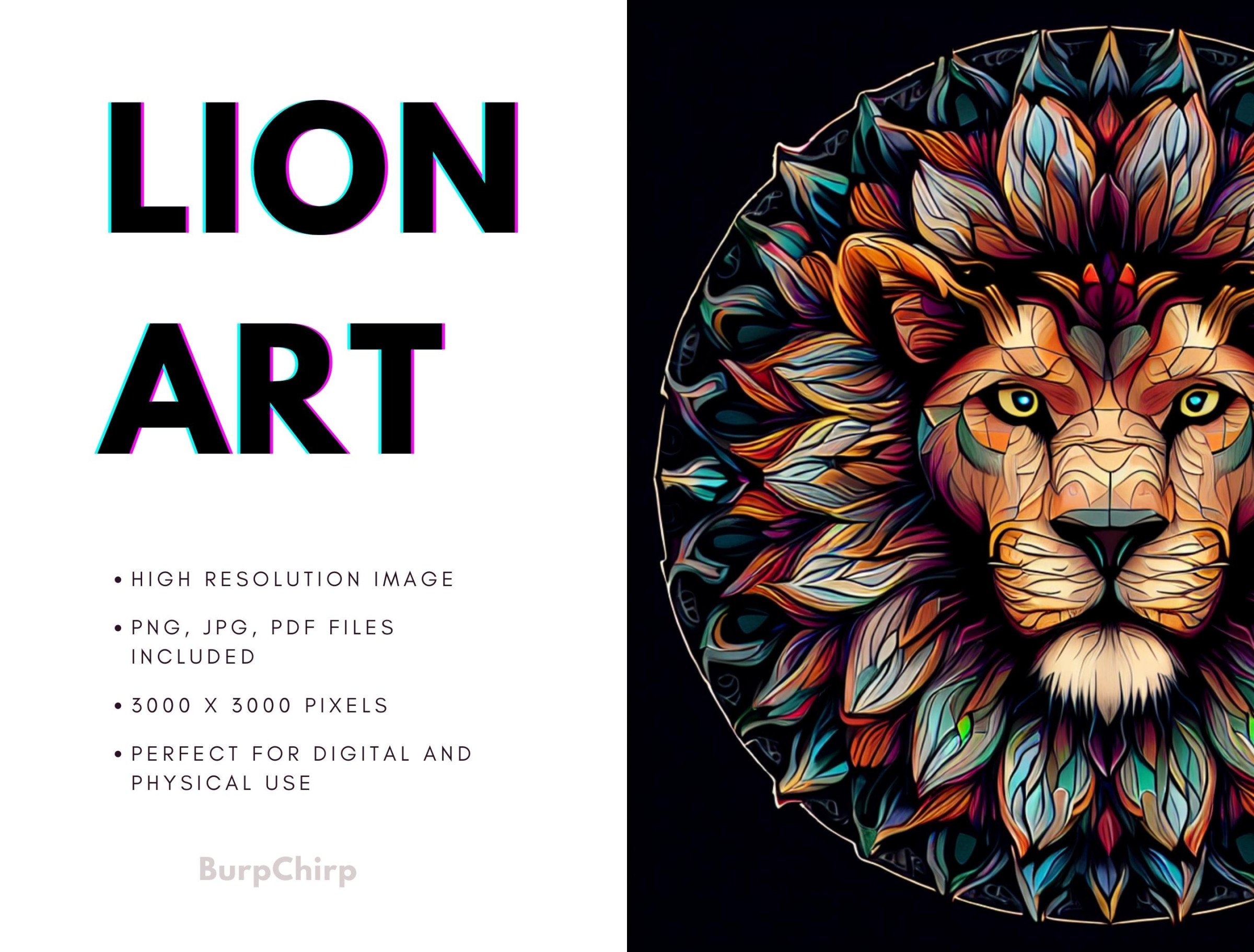Mindset Definition Printables
The term "mindset" refers to a person's attitude, beliefs, and mental framework that shape their perception, behavior, and response to various situations. It represents the lens through which individuals interpret and understand the world around them.
There are different types of mindsets that can influence how people approach challenges and opportunities. Here are a few examples:
Fixed mindset: This mindset assumes that intelligence, abilities, and qualities are fixed traits that cannot be changed significantly. Individuals with a fixed mindset may believe that their skills are predetermined, leading them to avoid challenges and shy away from effort or risk.
Growth mindset: In contrast to a fixed mindset, a growth mindset believes that intelligence, abilities, and qualities can be developed and improved through effort, learning, and perseverance. People with a growth mindset embrace challenges, view failures as opportunities for growth, and actively seek to expand their knowledge and skills.
Positive mindset: A positive mindset involves having an optimistic and constructive outlook on life. It involves focusing on opportunities, strengths, and solutions rather than dwelling on problems or limitations. A positive mindset can enhance resilience, motivation, and overall well-being.
Entrepreneurial mindset: An entrepreneurial mindset embodies a set of attitudes and behaviors typically associated with entrepreneurs. It involves being proactive, embracing uncertainty and risk, seeking innovative solutions, and being open to learning and adapting in dynamic environments.
Open-minded mindset: An open-minded mindset refers to being receptive to new ideas, perspectives, and experiences. It involves being willing to consider different viewpoints, challenge one's beliefs, and engage in thoughtful and respectful dialogue with others.
It's important to note that mindsets can be developed and changed over time through self-reflection, learning, and conscious effort. They can significantly impact personal growth, success, and well-being in various aspects of life, including work, relationships, and personal goals.
mindset
A mindset is a person's established pattern of thinking, beliefs, attitudes, and perceptions that shape their behavior and responses to different situations. It can be seen as a mental framework or lens through which individuals interpret and navigate the world around them.
A person's mindset can have a significant impact on their actions, motivation, resilience, and overall well-being. Here are a few common types of mindsets:
Fixed mindset: In a fixed mindset, individuals believe that their qualities, abilities, and intelligence are fixed traits that cannot be changed significantly. They may perceive challenges as threats and avoid them, fearing failure and judgment. Effort may be seen as fruitless, and setbacks can be demotivating.
Growth mindset: In contrast to a fixed mindset, a growth mindset believes that qualities, abilities, and intelligence can be developed through effort, learning, and perseverance. People with a growth mindset embrace challenges, see failures as opportunities for learning, and believe that their potential is not limited.
Abundance mindset: An abundance mindset is characterized by the belief that there are ample resources, opportunities, and possibilities available. Individuals with this mindset focus on collaboration, cooperation, and a mindset of abundance rather than scarcity. They believe in their ability to create and attract opportunities.
Scarcity mindset: A scarcity mindset is rooted in the belief that resources, opportunities, and success are limited. Individuals with this mindset may feel a constant sense of lack, competition, and fear of missing out. It can lead to a reluctance to take risks and a focus on protecting what they have rather than seeking growth.
Positive mindset: A positive mindset involves having an optimistic and constructive outlook on life. It includes focusing on possibilities, strengths, and solutions, even in challenging situations. A positive mindset can enhance resilience, problem-solving abilities, and overall well-being.
Open-minded mindset: An open-minded mindset is characterized by a willingness to consider different perspectives, ideas, and experiences. Individuals with an open-minded mindset are receptive to new information, willing to challenge their own beliefs, and engage in respectful dialogue with others.
It's important to note that mindsets are not fixed and can be developed, changed, or influenced through self-reflection, learning, and intentional effort. Adopting a growth mindset and cultivating positive and open-minded perspectives can lead to personal growth, improved performance, and a more fulfilling life.
Download inspiring mindset definition printables, download, print and frame it. its ready to gift your boss, collegue or friends.
Seo helpers: Mindset definition, definiton of mindset, mindset printables, digital printables for office, office digital printables, mindset wall art
Can I get in my preferred size?
Yes you can. Just purchase and message me.
